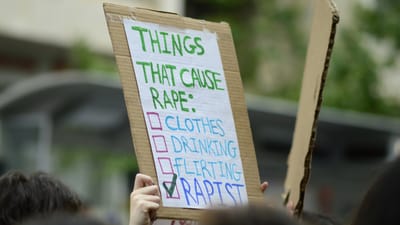“I don’t remember when it happened to me. I don’t know the details either—of who did it, where they did it, or what they used. All I know is the pain of knowing that my body had been permanently altered without my consent…My scars are physical, psychological and emotional.”
These searing words are from a Singaporean survivor of Female Genital Cutting (FGC), the term for removal of any or all of the visible clitoris/clitoral hood but which also refers to any genital disfigurement carried out for non-medical reasons.
More than three in four Muslim women in Singapore have suffered from some form of FGC. These are unofficial numbers—there is no formal research on the practice here—from surveys conducted by independent researchers, and movements like End Female Genital Cutting Singapore (EFS). I co-founded EFS in 2020, shocked into action after realising how prevalent genital cutting was in my own social circle.
The fight to end FGC is part of a larger ongoing battle for female autonomy, equality and equity here. The establishment likes to tout Singapore’s consistent presence among the top 10 nations for gender equality, high female participation in the workforce and its excellent public safety record. Good. But these dazzling numbers should not blind us to the multifarious ways in which the promise of autonomy and equality continues to be violated. This was why EFS was part of a group of NGOs representing Singapore, alongside government agencies, at the Convention on the Elimination of Discrimination Against Women (CEDAW) in Geneva earlier this year.
One of the United Nations’ nine core human rights treaties, CEDAW, has served as an international bill of rights for women since the United Nations General Assembly adopted it in 1979. By ratifying CEDAW, countries commit to taking measures to abolish discriminatory laws, incorporate gender equality in their legal systems, establish protection mechanisms for women, and eliminate all acts of discrimination against them. Signatories are “judged” on compliance with the treaty’s 30 articles every few years; their reports are submitted alongside “shadow reports” from local NGOs, allowing the CEDAW committee to interrogate any disconnects between official, usually triumphalist, narratives and those put forth by civil society.
Singapore signed CEDAW in 1995, but at the same time, rejected several key articles. In 2004, it withdrew its objections to Article 9, which called upon signatories to delink women’s nationalities from their husbands’, and give them equal rights with men when it came to their children’s citizenship rights. In April that year, the Singapore Parliament passed a constitutional amendment such that for the first time since independence, overseas-born children could acquire Singapore citizenship by descent from their Singaporean mothers. It was a historic moment, raising hopes for even more enlightened legislation that would make Singapore fully compliant with CEDAW requirements.




